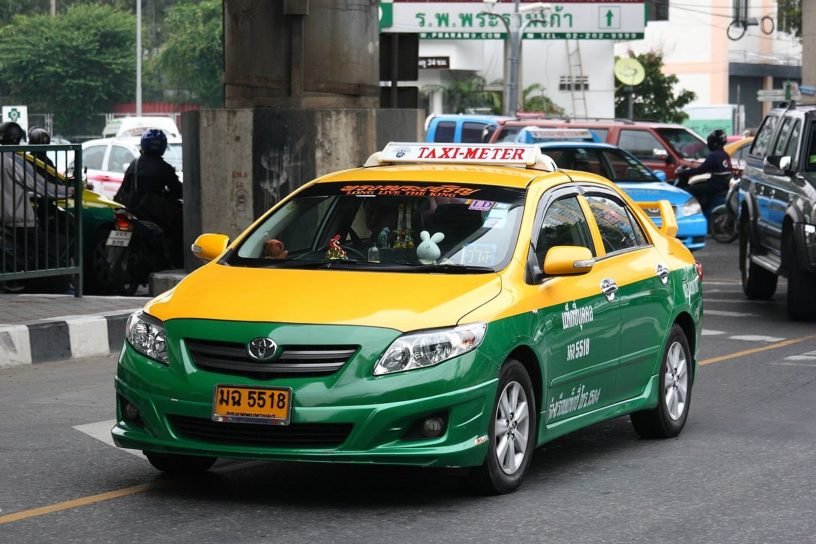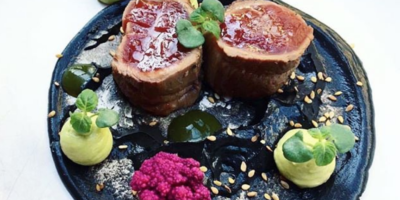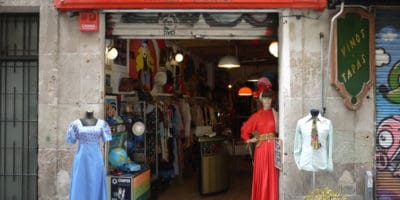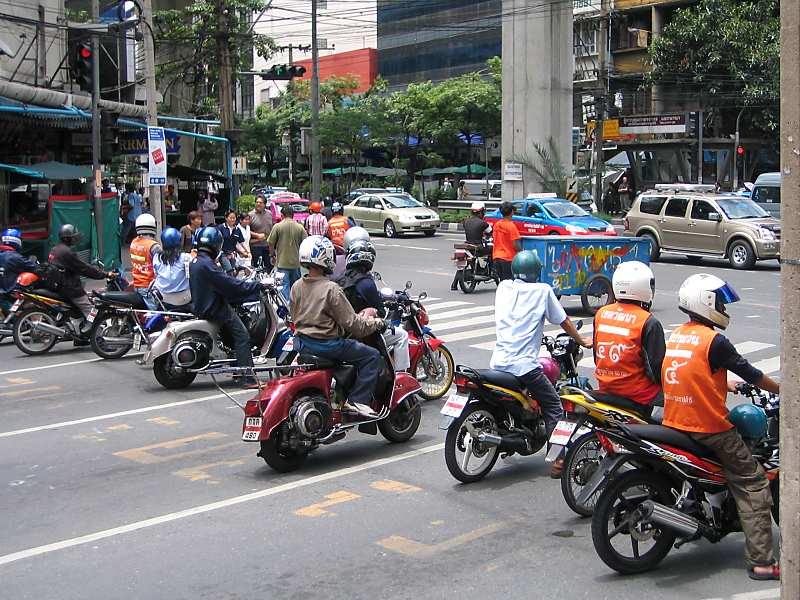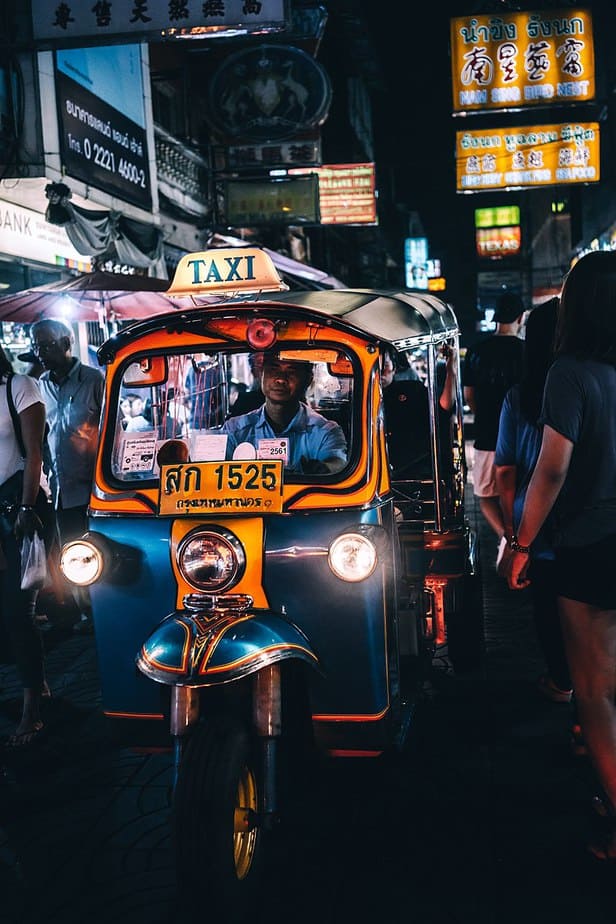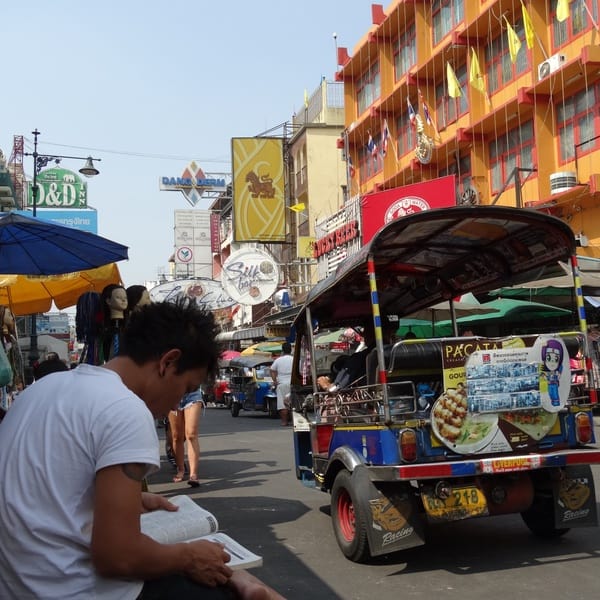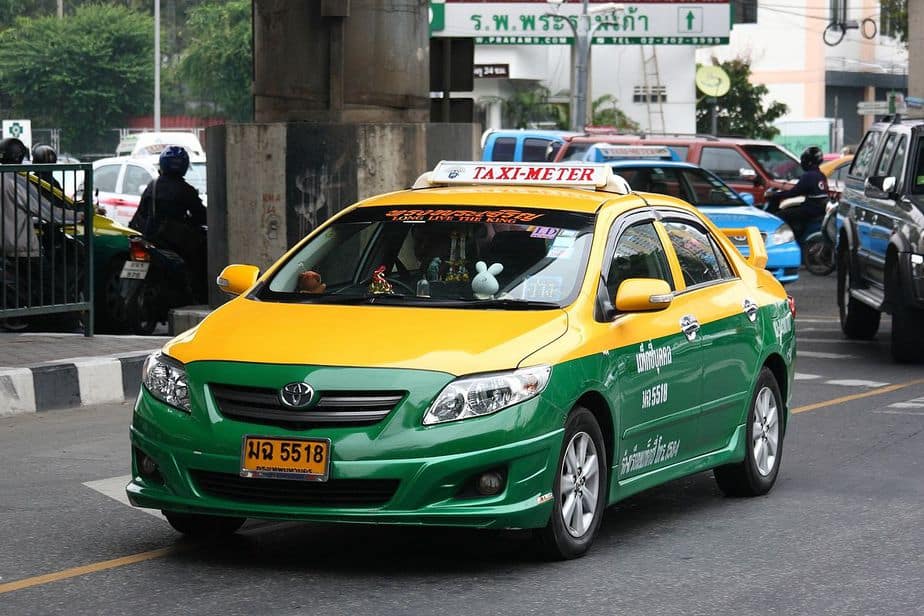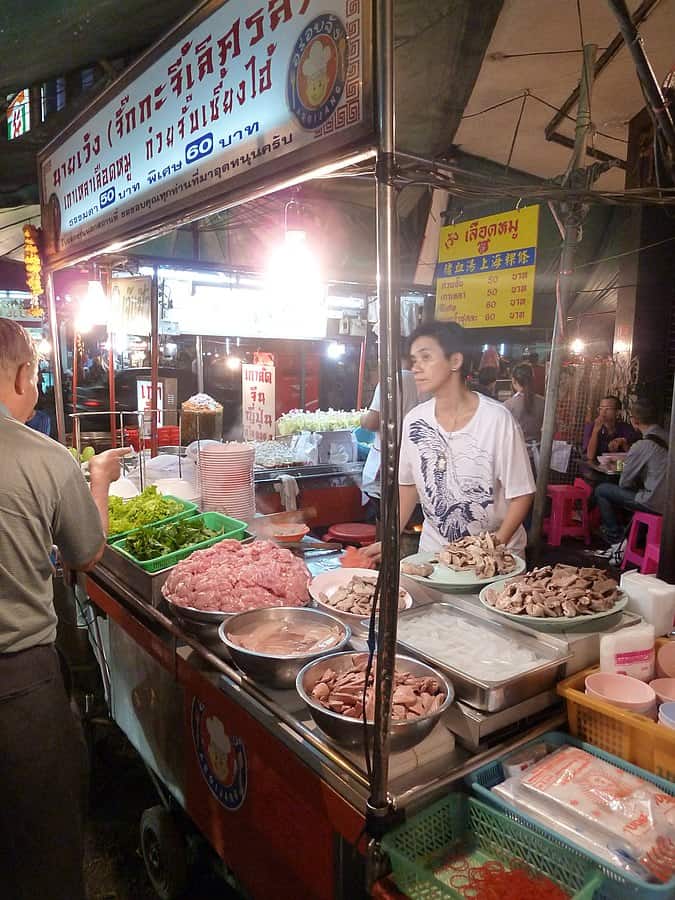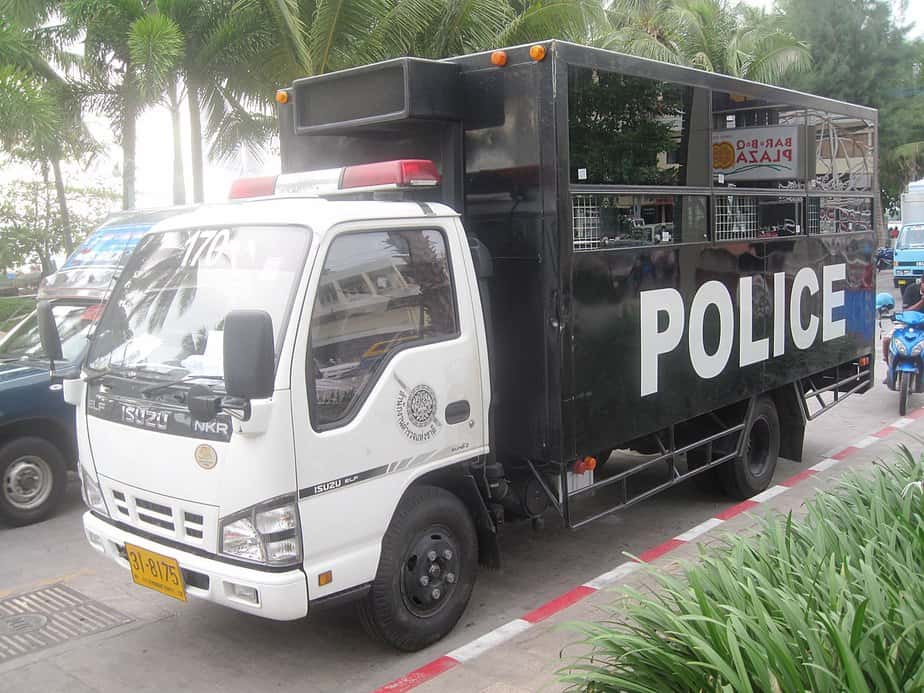Safety Tips for Visiting Bangkok
Bangkok, despite being one of the most-visited destinations on many a traveller’s lists, can also be a chaotic and overwhelming affair for the unprepared. And in some ways, it might even be quite a bit more dangerous than some people perceive, especially when they are wearing their ‘rose-coloured, holiday-maker spectacles’.
But there are, of course, different types and varying levels of danger than can easily be avoided if a little awareness is exercised. When considering whether the capital city of Thailand is safe to visit or not, there are a variety of factors and angles.
In any city, especially one that is unfamiliar and culturally different, it is always common sense for any visitor to keep their wits about them, and being aware of immediate surroundings and any potential threats (without verging on the paranoid), is the desired and acquired trait of many a seasoned traveller.
In some ways, Bangkok could be considered as quite a safe city, while from other perspectives it could be deemed as seriously perilous! Depending on where you are travelling from, what you are used to, and how well-travelled you are, you may in all likelihood find a few traits and occurrences peculiar to Bangkok that may come across as less than safe or somewhat dubious, so it is always an idea to get some kind of ‘heads-up’ on any possible dangers before travelling.
Aside from the obvious, run-of-the-mill advice given out by most embassies, it pays to read up on advice and perspectives from people who really know the place, either from having lived there or having travelled there to significant degrees.
Bangkok is often deemed to be a ‘medium risk’ area in many guidebooks, or travel and embassy websites. The degree to which this risk factor is increased or decreased depends largely on how well-versed visitors are in a few of the basic areas covered below, along with what kind of behaviour they are intent on exhibiting when they travel to other countries.
It is worth knowing that Thailand is still considered as an undeveloped country — a fact that is hard to believe for many tourists when they visit the 5-star hotels and luxurious shopping malls on offer in Bangkok.
But the undeveloped label does not relate so much to the infrastructure, condominiums or shopping centres – rather to the fact that the majority of the population (even in the city) stills hails largely from agricultural countryside areas with a very poor degree of education, which provides little in the way of critical thinking skills and also contributes towards and perpetuates limited and misinformed world-views.
Some of the main things to consider are the differences in perception that might exist between developed and undeveloped countries in terms of the following:
1. General safety when out and about
This relates mainly to the previous pointer about being aware of your surroundings, and in Bangkok, it pays to be particularly alert in a number of ways. But from a general perspective, one of the main things that this relates to is being a pedestrian.
Keep your eyes open! In Bangkok, you will find motorbikes with 3 people on them (wearing no helmets) heading towards you at speed on footpaths. They are also likely to ignore road signs and traffic lights – so needless to say caution is required even when on the footpaths, let alone when trying to cross the street! Chaos rules and it matters not whether you think you have the right of way, even when using pedestrian crossings and the like.
Having eyes in the back of your head and expecting the unexpected is undoubtedly the best way to approach the city on foot – anything could happen, and it probably will! The traffic in Bangkok rarely, if ever, yields to pedestrians (or other drivers) so always take extra care!
2. Culture and manners
A bit of a ‘no brainer’ really – but it pays to be careful what you say and who you say it to! Many people make the mistake of pointing out the differences between the place they are visiting and the place they come from, sometimes with the best intention, but this could easily be misconstrued in terms of context.
Thai people, although not necessarily always seeming so outwardly, can be somewhat on the sensitive side when it comes to anything that might even hint at criticism of their country or culture, particularly when English or other language skills are limited.
In fact, there are some topics that you simply cannot talk about in a negative way, with the Thai Royal family being the prime example. The lese majeste law is apparently quite strictly enforced in Thailand, with people facing harsh penalties for breaching this – so obviously it would be logical to steer the topic of conversation in another direction swiftly when this one comes up – even with ‘friendly’ locals.
3. Transportation and driving
Thailand undoubtedly (and statistically) has some of the most perilous roads in the world, with high levels of accidents and fatalities, not least of all involving motorbikes.
Driving of any form, but particularly that involving motorbikes is really NOT recommended. As previously discussed, drivers here rarely follow any kind of rules on the road, and this relates to anything from road signs to road markings to traffic lights to whatever any other driver might be doing, not doing, or attempting to do. It is also a fact that many people pay little attention to minor points like indicators – rarely bothering to use them at crucial points and often forgetting to turn them off altogether whether turning or not!
We have already considered being a pedestrian, and public transport like the BTS Skytrain or the MRT Subway are feasible options as long as you are not holding to any expectations and don’t mind the occasional trampling.
Buses are not altogether safe either, mainly due to the drivers (!) although some of the buses themselves are also well past their best. Bus collisions are quite common, especially with motorcycles, sometimes with cars, and sometimes even with other buses!
Although seen by many visitors as the archetypal Thailand experience, in all honesty taking a tuk-tuk does not come highly recommended either in terms of safety, reliability or pricing.
Tuk-tuk drivers generally tend to be uneducated farmhands from rural areas out to make a fast buck from what they consider unwitting tourists. Often these drivers are operating illegally with no license or insurance, don’t actually know the destination you have given them (being from the countryside) and/or are working on some kind of commission basis. They will often stop halfway towards the destination and try to renegotiate the price to three or four times higher than the agreed one. Simply not worth the hassle.
Taxis may be the slightly safer option, but look out for the meter scammers, making sure that the driver is in possession of a working meter before getting in the car. Having some idea of where you are going will also help (Google Map) before you get into a taxi.
Generally, there won’t be too many problems with taxis as it is getting harder for them now to operate in any devious capacity, but still, there are the occasional horror-stories of rip-offs, beatings, machete attacks and rapes perpetrated by taxi drivers who may be operating illegally with a fake I.D.
Another thing to consider is travelling alone. Many solo travellers come to Bangkok, and generally speaking, they should encounter no real problems as long as some precautions are considered. Travelling these days, even alone is much easier than ever before with virtual maps and such like. So, a little forward planning and a pinch of common sense should make for a smooth enough trip.
Always check that the driver’s number and I.D. (on the front left-hand passenger side) matches the actual driver. And needless to say, it is not recommended for females to take taxis alone, particularly at night, regardless of how well-travelled they might consider themselves to be.
4. Hygiene practices and food
Many people consider Bangkok street food to be among some of the best in the world – and to some extent that may certainly be true. However, there are also many practices that are carried out (or not) on a daily basis that simply would not conform to Western standards of hygiene and pose potential health risks to many visitors.
This could be anything from the highly common practice of using filthy oil that has been recycled over and over (watch out for that fried chicken), to providing wooden chopsticks on noodle stands laden with near-lethal bacteria that is absorbed into them with no chance of being purged by a quick dip in cold, dirty, soapy water that is also used to clean down tables and mop floors.
Meat and seafood are common culprits of food poisoning, from mild to severe cases, due either to poor hygiene or from being undercooked (did you ever wonder why many Thais chop up even KFC fried chicken into small pieces before chomping into it?).
Rice is also another problem for people from developed countries with their strict laws about covering or keeping warm cooked rice due to the spores that quickly form on it if left open. In Thailand, however, sometimes rice may be cooked once in the morning then taken off the heat and left with the top off (sometimes on a busy, traffic-congested street) as an invitation for small geckos and a variety of insects to dip into or deposit things in it between intervals of being served up.
These observations by no means apply to all street vendors – again a touch of common sense might be in order. Generally, if a restaurant is busy, with many customers either sitting and eating or waiting for food, it should be ok. But avoid the guy with the black oil who has 2 pieces of fried chicken left, at 6 pm, and no customers.
The tap water is another ‘no-no’. Although the government claims to follow global guidelines on water treatment, the pipes that supply the water are, according to many locals themselves, highly questionable – to the point where it may even be an idea to use bottled water for teeth cleaning.
5. Socialising and nightlife
In some ways, Bangkok could be considered safer than most Western countries in terms of running into problems when out and about at night. But this depends largely on the kind of night you are intent on having and which areas you venture into.
Bangkok does tend to have a kind of ‘don’t look for trouble and you won’t find it’ vibe to it, but obviously there are some areas where scammers and troublemakers are on the lookout for unsuspecting visitors with their guard down.
Bars in some areas are also raided not infrequently by police who most likely will perform drug tests — although this is actually illegal according to the law (they are required to take you to a police station if you are under reasonable suspicion). Most people comply for fear of arrest and there have been tales of people being ordered to perform urine tests on the street!
Knowledge of the law might help you in certain situations, but hey this is Thailand and is also a good reason why you should never leave drinks unattended as druggings do happen and are frequently reported – along with theft, extortion, wrongful arrest, bribery, blatant overcharging for drinks, food, entrance fees, taxi and tuk-tuk fares etc., etc., so do exercise awareness and remember that different ‘rules’ apply here!
As long as you keep your wits about you and don’t go looking for trouble by demonstrating a distinct lack of cultural awareness, the possibility of violence is probably much lower than in many developed, Western countries.
That said, there is always the possibility of it, hanging in the air, in an ‘edgy’ city like Bangkok (in some areas) but it should be avoided at all costs as again they probably just don’t do things in Thailand like they do ‘back home’. This includes indulging in fair, one-on-one fights without weapons – a highly unlikely occurrence – so forget the heroics and enjoy the unique vibe of Bangkok.
Planning a trip to Paris ? Get ready !
These are Amazon’s best-selling travel products that you may need for coming to Paris.
Bookstore
- The best travel book : Rick Steves – Paris 2023 – Learn more here
- Fodor’s Paris 2024 – Learn more here
Travel Gear
- Venture Pal Lightweight Backpack – Learn more here
- Samsonite Winfield 2 28″ Luggage – Learn more here
- Swig Savvy’s Stainless Steel Insulated Water Bottle – Learn more here
Check Amazon’s best-seller list for the most popular travel accessories. We sometimes read this list just to find out what new travel products people are buying.

